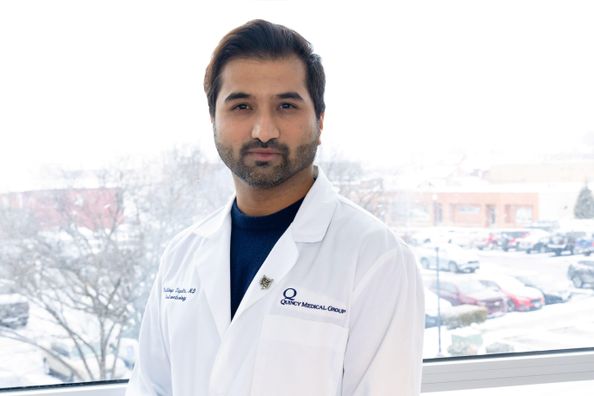Protecting yourself from colon cancer starts with screening, and for most, that should begin at age 45. While you have choices, colonoscopy stands out as the most effective tool. It not only detects cancer early but can actually prevent it. Adam Niemann, MD, a Gastroenterologist at Quincy Medical Group, explains why colonoscopy remains the gold standard and clarifies the differences between common screening methods.
Two Screening Options: Stool-Based At-Home Tests vs. Colonoscopy
There are two main types of colon cancer screening tests: colonoscopy and stool-based at-home tests. While at-home tests are an option for some, they are not a replacement for colonoscopy — especially for those at higher risk.
Stool-Based At-Home Tests
Stool-based tests like Cologuard are becoming more common for colon cancer screening because they are non-invasive and easy to use. However, their ability to detect cancer and precancerous polyps is limited.
“Cologuard looks for DNA changes and blood markers in the stool,” explained Dr. Niemann. “A positive result could indicate the presence of colorectal cancer or precancerous polyps and should be followed up with a colonoscopy.”
Cologuard is only designed for individuals at average risk — those without symptoms, no family history, and no history of precancerous polyps. “If someone has had precancerous polyps in the past, Cologuard is not an approved screening option for them,” Dr. Niemann added.
Colonoscopy
While stool-based tests offer convenience, a colonoscopy provides a more comprehensive approach to colon cancer screening.
“A colonoscopy is the most thorough test available,” said Dr. Niemann. “Not only does it help us detect cancer, but it also allows us to find and remove precancerous polyps — preventing cancer before it even starts.”
During the procedure, a thin, flexible tube with a camera is inserted into the colon to examine for abnormal growths. Performed under sedation, a colonoscopy allows doctors to remove any polyps immediately, offering both detection and treatment in real time. This dual benefit makes it the preferred screening method.
Regular colonoscopies play a crucial role in reducing the risk of colon cancer. “The risk of dying from colon cancer has been shown in studies to decrease by at least 50% with colonoscopy, likely more,” said Dr. Niemann.
Understanding Your Screening Needs
Dr. Niemann encourages those who are due for a colon cancer screening to take action. “Colonoscopy is one of the few screening tests where we not only can find cancer early but also hopefully prevent it from happening in the first place,” he said.
If you have questions about your screening needs, speak to your primary care provider. To schedule your screening, or for more information, call the QMG Gastroenterology department at 217−222−6550, ext. 3636 or visit quincymedgroup.com/colon.
Health Topics:





